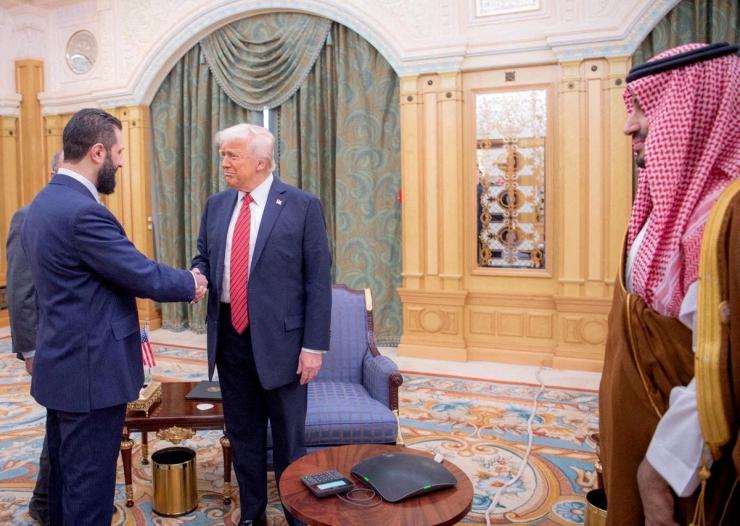As Syria grapples with sectarian clashes in the south and Israeli airstrikes in Damascus, Saudi Arabia is pushing forward with plans to engage economically.
A high-level business delegation led by Investment Minister Khalid Al-Falih arrived in the Syrian capital for an investment forum expected to generate trade deals worth 15 billion riyals ($4 billion). The message is that Riyadh isn’t concerned — yet — about the debate in Washington over the complete lifting of US sanctions. President Donald Trump pledged to remove restrictions on doing business in Syria during his May visit to the kingdom, a move he attributed in part to a request from Saudi Crown Prince Mohammed bin Salman.
Private investors and foreign companies aren’t spooked either. Six Saudi billionaires — including Mohammad Abunayyan and Sulaiman Al-Muhaidib — met with Syria’s interim president over the past week, the Middle East Institute’s Charles Lister wrote in his Syria Weekly newsletter. Executives from global firms like Baker Hughes, Hunt Energy, Shell, Samsung, and Thales also visited Damascus, drawn by opportunities in reconstruction and energy.
With Iran’s influence waning and Russia distracted, many countries are vying for a role in stabilizing Syria. Unlike Israel and Türkiye, which have security interests and the military capabilities to directly intervene, Saudi Arabia and other Gulf countries are focusing on shaping Syria’s economy, using investment to exert influence in the war-torn country.


